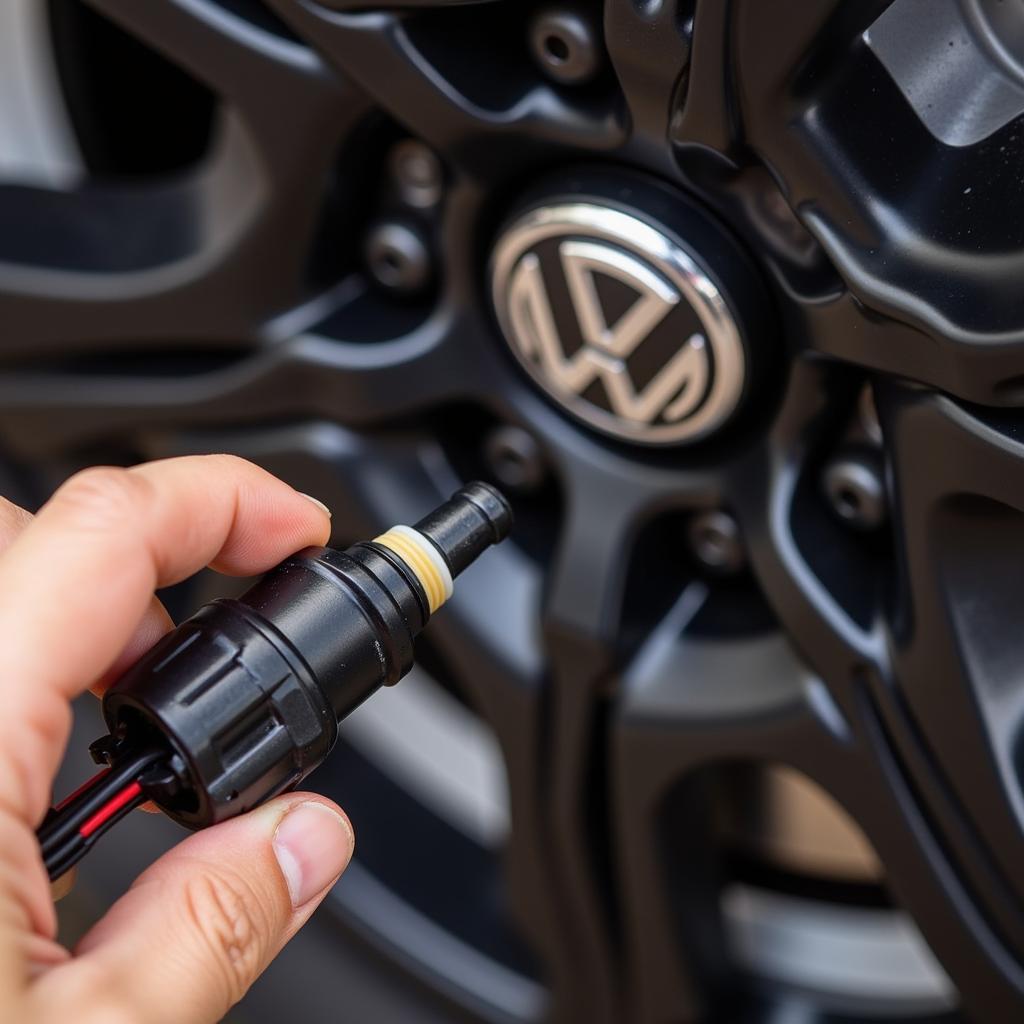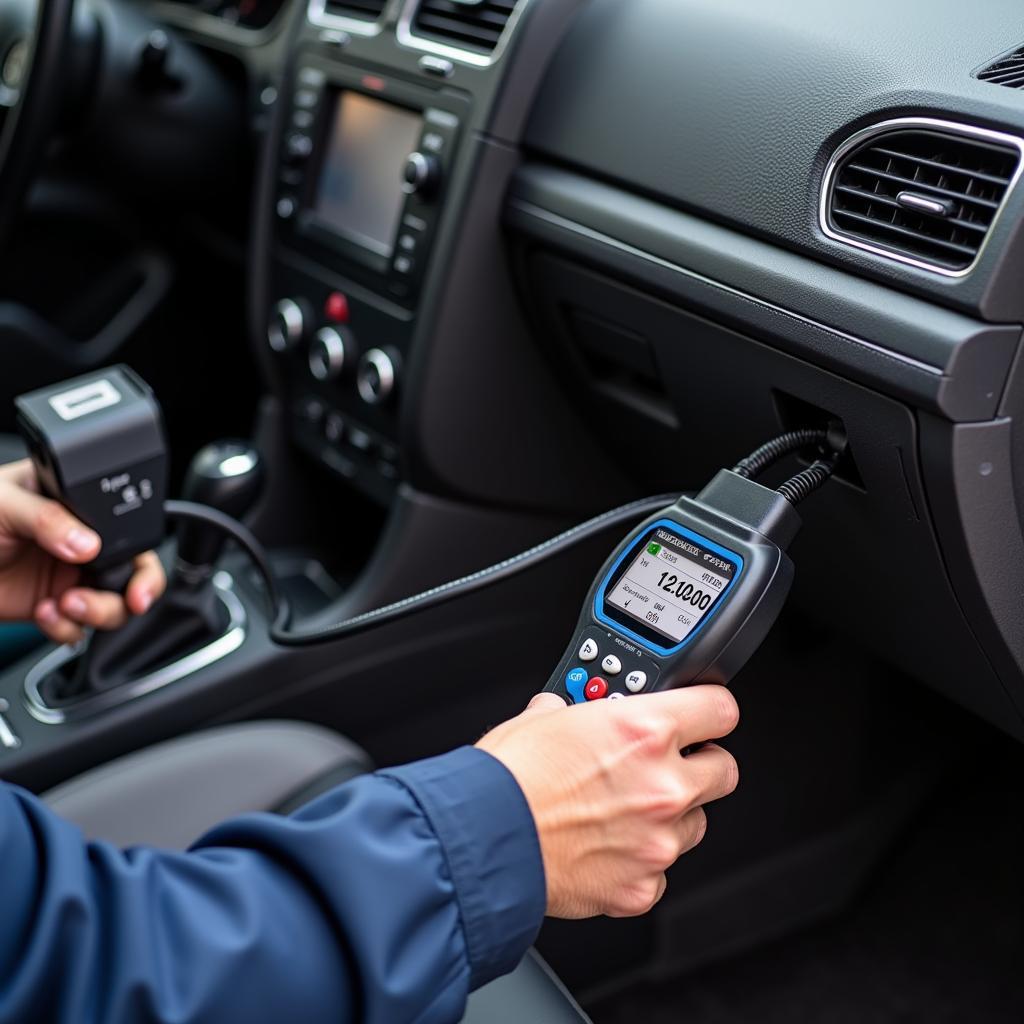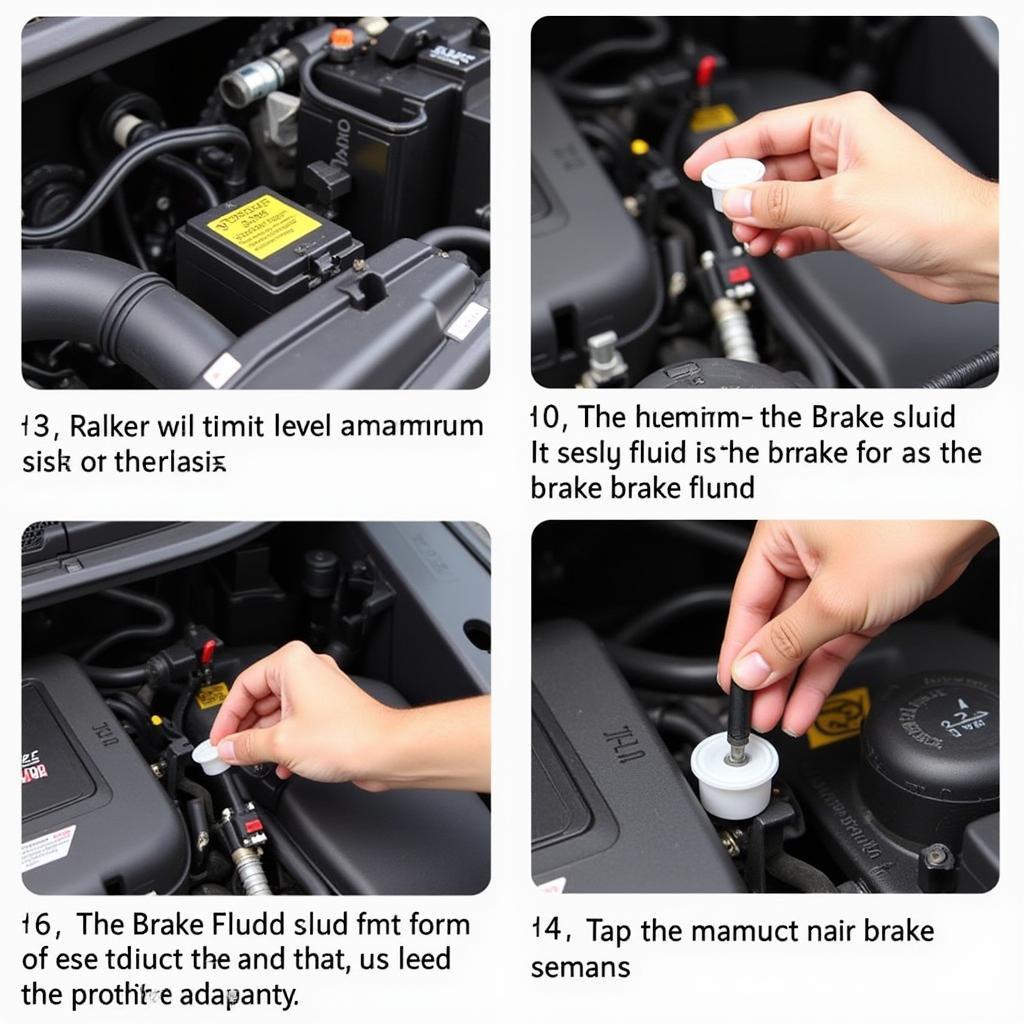The ABS brake warning light on your VW Golf illuminating can be a nerve-wracking experience. This light is a critical safety feature, and when it’s on, it signifies a potential issue with your car’s Anti-lock Braking System (ABS) or Electronic Stability Control (ESC). Ignoring it could compromise your safety on the road. This article delves into the common causes of a VW Golf ABS brake warning light and provides solutions to help you get back on track safely.
Understanding Your VW Golf ABS System
Before we dive into the causes, it’s crucial to understand the basics of your car’s ABS. The ABS is a sophisticated safety feature that prevents your wheels from locking up during hard braking. This allows you to maintain steering control and avoid skidding, especially on slippery surfaces.
The system comprises several components:
- Wheel speed sensors: These sensors monitor the rotational speed of each wheel.
- Hydraulic control unit: This unit regulates brake fluid pressure to each wheel.
- Electronic control unit (ECU): The ECU receives data from the wheel speed sensors and controls the hydraulic control unit to prevent wheel locking.
Common Causes of a VW Golf ABS Brake Warning Light
When the ABS warning light illuminates on your VW Golf, it triggers a fault code stored in the car’s ECU. These codes can be read using a specialized diagnostic scanner, which helps pinpoint the exact issue. Here are some of the most common culprits behind the dreaded ABS brake warning light:
1. Faulty Wheel Speed Sensors
Wheel speed sensors are among the most frequent offenders. These sensors are susceptible to damage from road debris, corrosion, or even normal wear and tear. A malfunctioning sensor sends inaccurate information to the ECU, triggering the warning light.
 VW Golf Wheel Speed Sensor
VW Golf Wheel Speed Sensor
2. ABS Control Module Issues
The ABS control module is the brain behind the entire system. Like any electronic component, it can malfunction due to electrical problems, exposure to moisture, or simply age. When the control module fails, it can lead to erratic ABS behavior or complete system shutdown.
3. Low Brake Fluid Level
Brake fluid is the lifeblood of your car’s braking system, including the ABS. A low brake fluid level often indicates a leak in the system, which can significantly impact braking performance and trigger the ABS warning light.
4. Worn Brake Pads
While not directly related to the ABS, severely worn brake pads can indirectly trigger the warning light. The thinner pads can affect the wheel speed sensor readings, causing confusion in the system and triggering a fault code.
5. Blown Fuse
A blown fuse in the ABS system’s electrical circuit can disrupt power flow and render the system inoperable, leading to the warning light coming on.
Diagnosing Your VW Golf ABS Brake Warning Light
Pinpointing the exact cause of the ABS brake warning light requires a systematic approach:
- Visual Inspection: Begin with a visual check of your brake fluid level. If it’s low, address the leak before proceeding.
- Diagnostic Scan: The most effective way to diagnose ABS issues is using a professional-grade OBD-II scanner. This tool reads the fault codes stored in your car’s ECU, providing valuable insights into the problem’s root cause.
- Component Testing: Based on the fault codes, further testing of specific components like wheel speed sensors, wiring harnesses, and the ABS module may be necessary.
Solutions and Repairs
The repair approach depends on the diagnosed issue:
- Faulty Sensors: Replacing the faulty wheel speed sensor(s) is usually the solution.
- ABS Module Issues: In some cases, the ABS module can be repaired or reprogrammed. However, module replacement is often the most reliable solution.
- Low Brake Fluid: Address the leak and bleed the brake system to remove air bubbles.
- Worn Brake Pads: Replace the worn brake pads with new ones.
- Blown Fuse: Replace the blown fuse with a new one of the correct amperage.
 VW Golf ABS Diagnostic Scan
VW Golf ABS Diagnostic Scan
When to Seek Professional Help
While some ABS-related issues can be addressed with basic mechanical skills, it’s crucial to understand that the ABS system is complex and safety-critical. If you’re uncomfortable with the diagnosis or repair procedures, it’s best to entrust your VW Golf to a qualified mechanic specializing in VW vehicles.
Attempting DIY repairs without proper knowledge and equipment can exacerbate the problem and compromise your safety.
VW Golf ABS Brake Warning Light: FAQs
1. Can I still drive my VW Golf with the ABS light on?
While you may retain regular braking functionality, your ABS and ESC systems might be disabled. This can be dangerous, especially in emergency braking situations or on slippery roads. It’s best to minimize driving and consult a mechanic promptly.
2. How much does it cost to fix a VW Golf ABS light?
The cost can vary greatly depending on the underlying issue. Sensor replacements are usually less expensive than ABS module repairs or replacements. Get a quote from a trusted mechanic for an accurate estimate.
3. Can I prevent my VW Golf ABS light from coming on?
Regular vehicle maintenance, including brake inspections and fluid flushes, can help prevent many ABS-related issues. Additionally, addressing warning lights promptly can prevent minor issues from escalating into major problems.
Conclusion
A glowing VW Golf ABS brake warning light should never be ignored. Understanding its potential causes and the importance of timely diagnosis is key to ensuring your safety on the road.
Remember, while this article provides helpful information, it’s not a substitute for professional advice. If your ABS warning light persists, consult a qualified mechanic specializing in VW vehicles for a thorough inspection and repair.
By staying proactive and addressing issues promptly, you can keep your VW Golf running smoothly and, most importantly, safely.

